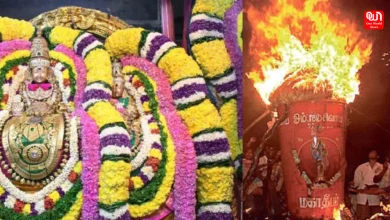Racism: The Hidden Truth

Racism: The Hidden Truth
“I have a dream that one day people will not be judged by the color of their skin, but by the content of their character.” – Martin Luther King Jr.(American civil rights activist and winner of the Nobel Peace Prize)

Many Indians erroneously think racism is a western phenomenon. But recent incidents, particularly related to students from the north-east,has brought home the fact that racial discrimination exists in India.Incidents involving racism are often difficult to prove. No doubt, at times, there are incidents of racial discrimination involving extreme violence which are very obvious and are criticized by all. But otherwiseracism is very subtly felt by the victims in its various manifestations.
A glance through our chequered history would suggest that racial discrimination has existed throughout centuries and still exhibits its ugly face in various forms and manifestations. The term ‘race’ or ‘racial group’ refers to the categorization of human beings into groups on the basis of a set of biological characteristics such as skin color, facial features or hair texture. ‘Racism’ implies the discrimination and unequal treatment meted out to a particular group of people purely because of its possession of distinct biological or physical traits.

Recent social researches confirm that a discriminatory and iniquitous social order based on race is not only fallacious but also an affront to the cherished progress of human civilization. It is now an established fact that differences in ability and achievement are not an outcome of genetic characteristics but are determined by a complex interplay of social, economic and cultural milieu.

After the Second World War, a series of International meets and conventions have vehemently denounced the phenomenon of racism and have called for the creation of a more humane, just and equitable social order. Some of the important Global Meets against Racism are the United Nations Universal Declaration on Human Rights, 1948; International Convention on the Suppression and Punishment of the Crimes of Apartheid, 1976; United Nations International Convention on the Elimination of all forms of Racial Discrimination adopted in 1966; the World Conference Against Racism, Racial Discrimination, Xenophobia and Related Intolerance held in Durban (South Africa) in 2001.

However, racism has not vanished from the world. It still persists, either overtly or covertly. The worst sufferers of this pernicious phenomenon, in the present era of globalization, are the migrants and expatriates who often complain with anguish the discrimination they suffer in the countries of their immigration.

Throughout history, racism has provided the ideological basis for social stratification and inequality (e.g. discrimination against blacks in US). Race has provided legitimacy for the atrocious and demeaning treatment of certain group of people (e.g. ‘Apartheid’ in South Africa and‘Slavery’ in medieval Europe).Racism hasalso provided the rationale for the existence and perpetuation of colonialism (e.g. British citing the racial inferiority of Indians responsible for their subjugation).It has formed the basis for the merciless persecution of certain groups of people (e.g. killing of Jews under Nazi Germany).
Human civilization is still in the grips of parochial and primordial sentiments like racism and ethnicity. The sudden spurt in racial attacks in recent years across the world merits threadbare analysis of the present social order. Many analysts feel that unbridled globalization itself is the cause of the rise of racial feelings. By knocking down national barriers and by promoting smooth migration, globalization is leading to the process of cultural homogenization. Such a phenomenon has led to fear and anxiety among many social groups about the loss of their cultural distinctiveness and their assimilation into more widespread dominant culture. This has caused intensification in the process of racial and ethnic identity and growth of cultural chauvinism and ethnic nationalism.
There is an acute rise in instances of racial hatred and detestation by dominant European cultures against their migrant minorities.For a considerable number of years, the Europeans have ruled over the rest of the world, as a consequence of which, a feeling of “white superiority” has got deeply ingrained in their psyche. However, the upsurge in racism in recent years also demands explanation beyond the “overweening superiority factor”.

It cannot be denied that economic factors always lie at the roots of any such discrimination and antipathy.Since recent past, developing countries especially India and China have made maximum use of the process of globalization and have made impressive progress in the global economic order. India is now a world leader in Information Technology and is a global outsourcing hub. Skilled Indian professionals who have migrated to western nations have not only done exceedingly well in the fields of science, technology and industry but have also outshone many of their European counterparts. A gradual waning of their economic dominance has not gone down well with the Europeans.Many in western countries consider the Asians or Indians responsible for their joblessness and unemployment. Such feelings have intensified in the present times of economic recession. Racial discrimination is just an outward manifestation of their deep frustration and their inability to compete fairly with resurgent Asians and Indians.
Analysts feel that as the economic and political importance of India will rise in the ensuing years, there is every possibility of amplification in the incidences of such hate attacks. The Indian government must garner all its diplomatic strength and leverage to strength the existing institutional and legal frameworks against racism. There is also a need to have a well-defined policy in place to ensure the safety and security of emigrant Indians.
Right since independence, India has taken a very firm and principled stand against racism.As a state policy, India unambiguously and summarily rejects any form of racial discrimination.Even during the pre-independence era,national leaders like Gandhi and Nehru categorically expressed their disapproval of racial discrimination.India also expressed her unequivocal solidarity with the blacks in South Africa during the period of Apartheid.

The Indian Constitution rejects any racial and ethnic distinction.The Preamble obligates the state to provide for equality and justice for all without any discrimination.Article 14 provides for equality before law and equal protection under law for any person within the territory of India. Articles 15 and 16 which are Fundamental Rights explicitly prohibit any discrimination on the basis of race.
Despite several painstaking efforts by the global community to end racism and ethnicity,they still persist and display their monstrous face and abominable attributes.Any nation that glosses over the existence of such parochial sentiments in the contemporary times of cultural and economic integration does so only at its own peril. If a country wishes to march ahead along with the global community and partake of its due share in the benefits ushered in by globalization, it must indisputably and emphatically end all forms of discrimination based on race.







